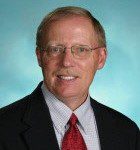After spending nearly a week with a group of seniors on their class trip to Florida, I would postulate that their parents, their community, and their schools have successfully prepared them for life after high school. These students were very supportive of each other, were respectful of others, and adapted to the daily changes that they faced with equanimity and confidence. Given a new environment, the requirement to manage their days (and their money), and interacting with a large number of strangers, they all successfully navigated the activities showing their preparedness for life changes as they graduate from high school this June.
Activities like this field trip display students’ abilities to put the skills and knowledge they have acquired to date into action. While this reflects academics, it is also highly dependent on their ability to use knowledge to solve real-life problems, create new paradigms, and institute a solution with confidence. That level of expertise is based not only on what happens at school, but in the home, in the community, and often in the workplace, with the old saying that ‘practice makes perfect’ factoring in their overall success. I’m sure that the level of success they had during this senior trip was in large part due to learning from mistakes made in the past, but this trip showed that they have learned to apply that knowledge in a way that yielded success.
The ability to function both independently and as part of a larger group, and to communicate, collaborate and think critically are all desired traits that will help anyone be successful in life. These traits—taught and honed in myriad activities such as sports, clubs and student activities, learning to work with siblings, parents, and neighbors, in completing group projects, and in the workplace—are some of the very things that, despite their importance, are not currently measured in state-mandated tests. As we move forward in implementing new state-mandated staff evaluations, we will look at developing ways, outside of taking field trips, to measure the success of our students in acquiring and using these skills: skills that our students will have to have in order to be successful in college, in the military, or in the work force. Not surprisingly, these same skills are needed in order to be a successful citizen, family member, and even an elected official. While we have a long way to go to develop an effective way to measure a student’s success in acquiring and using these skills on a routine basis, I’m excited to be working with our staff in moving this idea forward as we continue to emphasize the importance of educating the whole child, something this senior trip has proven we’ve done for those students who had the opportunity to participate.
I’d also like to take a moment to thank those chaperones, past and present, who were willing to give not only of their time but also to pay their own way, in order to accommodate the desire of our senior classes to take this senior trip. It certainly makes for some long days but also for some interesting conversations and the opportunity to see the potential that these students have as they face their future.


